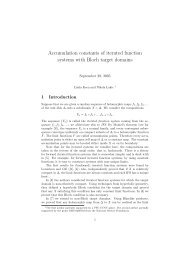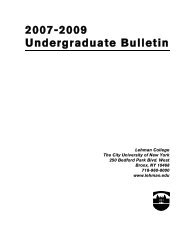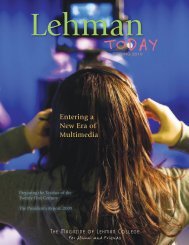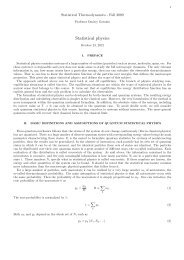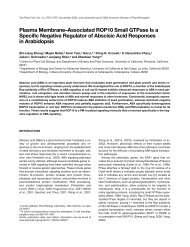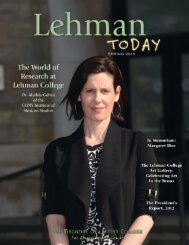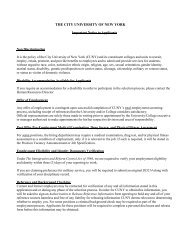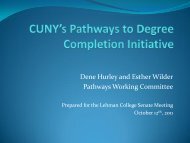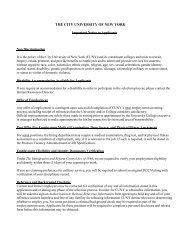Create successful ePaper yourself
Turn your PDF publications into a flip-book with our unique Google optimized e-Paper software.
Resonates with a New Generation<br />
of students. “The response was incredibly moving,” she says. “Their<br />
weeping moved me to tears.”<br />
Professor Bitton-Jackson begins her talks by saying, “As survivors,<br />
we are an endangered species. Very soon there will be none of us<br />
left. And to those who would like to deny the Holocaust, I want you<br />
to be able to say, ‘I heard it from someone who lived it’.”<br />
She asks for their commitment to be her ambassadors. “Tell my<br />
story to your children, to your friends, to your colleagues—so this<br />
will never happen again.”<br />
When World War II broke out, Jews in Europe had nowhere to run.<br />
“We were trapped after Hitler rose to power. But a Jewish state<br />
would have saved us,” Professor Bitton-Jackson says. “So I encourage<br />
everyone to be a friend of Israel.”<br />
Her most recent book is yet another amazing saga in an extraordinary<br />
life. Entitled Saving What Remains: A Holocaust Survivor’s<br />
Journey Home to Reclaim Her Ancestry, the book begins in 1978.<br />
Professor Bitton-Jackson’s mother hears that a new dam on the<br />
Danube River will flood the Jewish cemetery where the family’s<br />
ancestors are buried.<br />
“She wanted her parents’ remains to be exhumed and reburied in<br />
Jerusalem,” she explains. “But how could I possibly do that? At the<br />
time, Czechoslovakia was still a Stalinist regime.”<br />
It took two years to get the necessary documents together. On top<br />
of that, she was technically a fugitive from that nation.<br />
After the war, Professor Bitton-Jackson had worked as a part-time<br />
teacher in a public school in Bratislava, which was then part of<br />
Czechoslovakia. Because she was employed in the system, she<br />
had been required to join the Communist Party. In 1949, when she<br />
fled through the forests of Austria, she was committing a criminal<br />
act, punishable by twenty years in prison.<br />
“People warned me that it was dangerous [to return there],” she<br />
says, “but Len came with me—with his Irish, British, and Canadian<br />
passports.”<br />
When, at last, her grandparents’ grave was to be opened, a final<br />
signature from a local burial authority was needed. But the woman<br />
in charge firmly refused. All seemed lost. Suddenly Professor<br />
Bitton-Jackson recognized her as the daughter of the town’s<br />
midwife—and a former classmate. She spoke to her in Hungarian.<br />
“Irena, do you recognize me?”<br />
“No,” she said.<br />
“Your mother brought me into this world. I sat behind you in school.”<br />
When Professor Bitton-Jackson revealed her childhood name,<br />
the woman began to cry. “She hugged me and signed the paper I<br />
needed, and we were allowed to carry out the exhumation.”<br />
The Jacksons live in Natanya, Israel, on the Mediterranean, where<br />
they swim all year around. She talks daily to her children in New<br />
York, and they visit often.<br />
“Imagine, I now have great-grandchildren,” she says.<br />
And they, too, will hear the music.<br />
<br />
— Anne Perryman<br />
But all that changed after her fateful trip to<br />
Auschwitz. Upon her return to the U.S., and<br />
living then in Philadelphia, she formed the<br />
non-profi t Champions of Caring (champions<br />
ofcaring.org). She began creating the blueprint<br />
for a curriculum that teaches the lessons<br />
her parents gave her. Champions of Caring offers community- and<br />
school-based programs to educate and empower young people<br />
to become leaders in service and advocates for social justice.<br />
Now, sixteen years later, her curriculum has reached more than<br />
10,000 young people in both South Africa and over fi fteen Philadelphia-area<br />
middle and high schools. “Our curriculum teaches<br />
children character and personal growth and gives them the tools<br />
to realize they can enact social change,” she says.<br />
The outgrowth of that experience led her to pen a part-memoir,<br />
part how-to book, Live Your Legacy Now! Ten Simple Steps to<br />
Find Your Passion and Change the World. “People talk about<br />
leaving a legacy for their children,” she says. “But why wait? My<br />
book is about enjoying your legacy with your children, sharing<br />
your experiences with family and friends, and creating a culture<br />
of caring and meaningful change in your own life. That’s how you<br />
change the world—by changing people one at a time.”<br />
These life lessons were reinforced, she says, when she was a<br />
student at Hunter-in-the-Bronx. “I’m so grateful for the wonderful<br />
education I received,” she says. “I’m very grateful for the opportunities<br />
it has given me. This school has helped so many people<br />
realize their dreams.” In March 2010, she returned to the campus<br />
to speak about her experiences. <br />
<strong>Lehman</strong> Today/<strong>Spring</strong> <strong>2011</strong> 15



